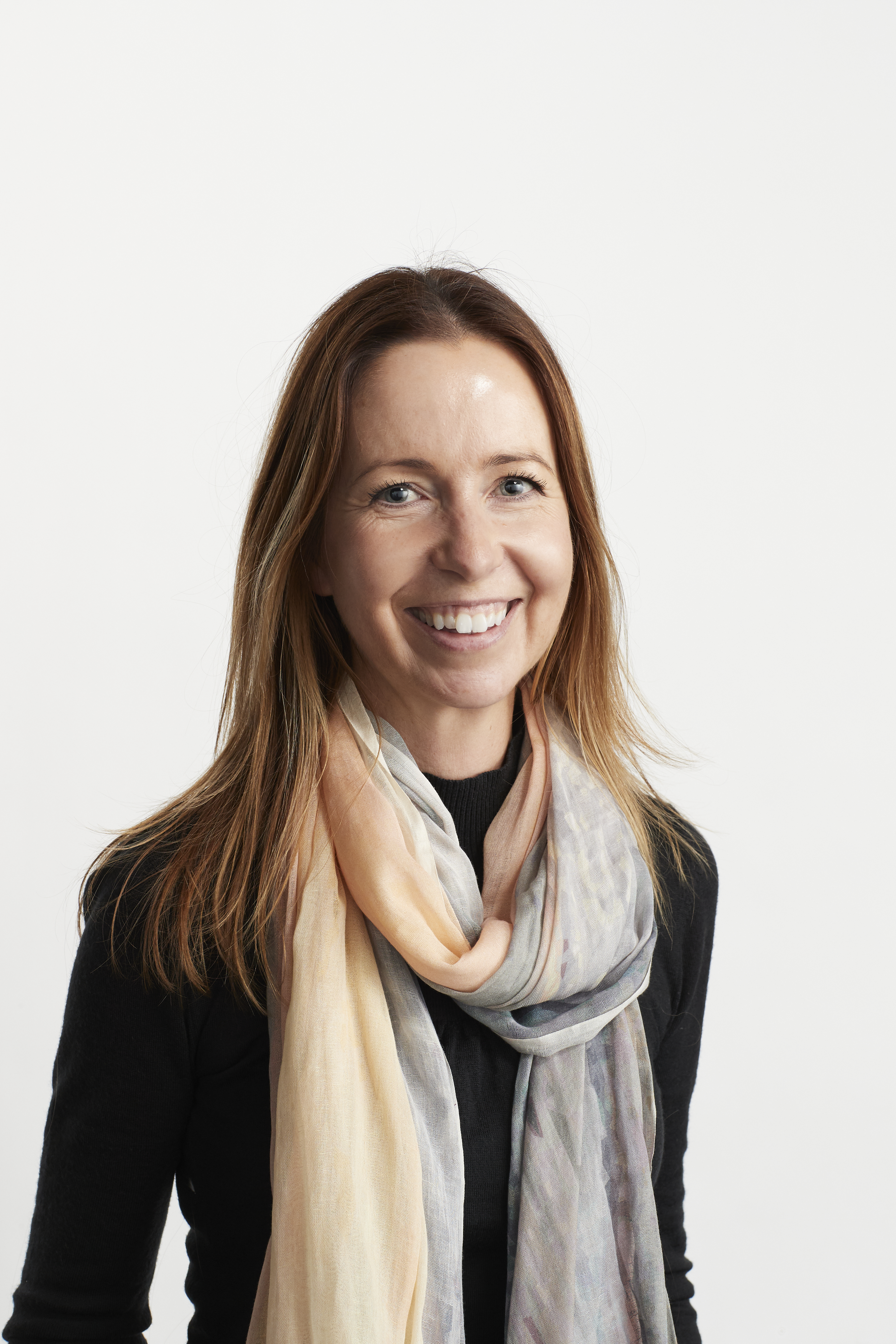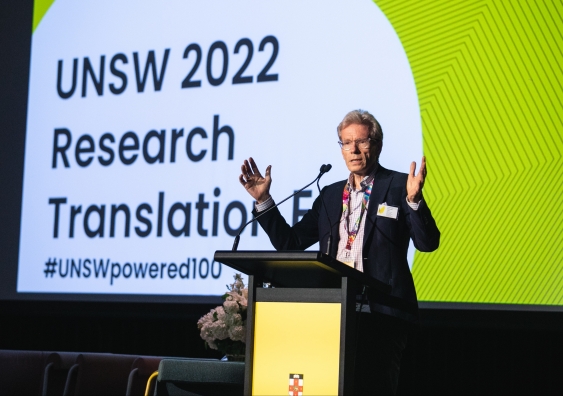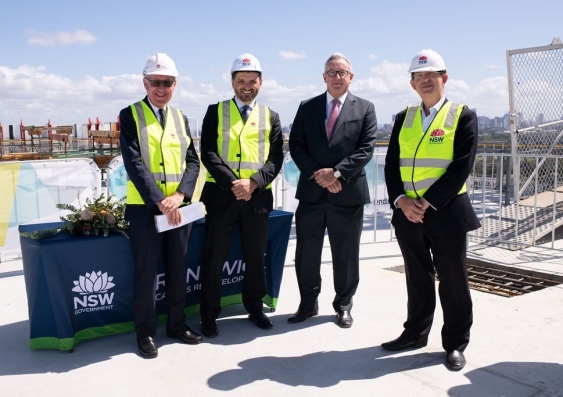UNSW showcases the future of health
2024-03-12T10:21:00+11:00

Photo: Getty Images.
Providing next-generation treatments to cancer patients and a virtual robot to help with children’s mental health are just two exhibits on display at UNSW’s Future Health Expo.
Over 70 health research projects, startups and spin-outs will be on display at the UNSW Future Health Expo held at its Kensington campus later this week.
The expo is an opportunity for potential collaborators, government, and the community to connect directly with UNSW’s leading academics in health research translation.
UNSW Pro Vice-Chancellor, Industry and Innovation, Professor Stephen Rodda said, “We’re thrilled to be opening our doors to the public to showcase some of the incredible research being undertaken by our academics, startups, and spin-outs. At UNSW, we are at the forefront of health translational research, but this can be difficult to see from the outside.
“This will be the first in a series of events purposefully designed to showcase UNSW capabilities aligned to each of the federal government’s National Reconstruction Fund priority areas, giving government and industry an opportunity to learn more and to work with us.
“The expo is a wonderful opportunity for exhibitors to demonstrate their research in an interactive way such as a video, game, quiz, prototype, or virtual reality experience.”
The expo will demonstrate the breadth and depth of UNSW’s translational research across:
• Therapeutic Innovations: Small Molecules, Biologicals, Vaccines
• Healthcare Technology: Devices, Telehealth, Biotech
• Next-Gen Medicine: Digital, Precision, AI
• Health Systems: Education, Policy, Community
Future Health is the first of five planned events at UNSW this year aligned with the government's $15 billion National Reconstruction Fund. Future Health will be followed by Future Climate in May, Future Energy in July, in September a Future Defence event is planned for Canberra and Urban Futures will be showcased at Paddington campus in November.
Some of the exhibits on display at Future Health include:
A virtual robot helping children with mental health issues
UNSW-supported startup Gheorg has developed a virtual robot character to help children with the top five mental health issues - anxiety, depression, ADHD, OCD and self-harm.
The Gheorg app currently covers anxiety and depression with plans to expand its offering to the other issues at a later stage. It is available in 78 countries, and operates in four languages including English, Chinese, Italian and the Aboriginal language Noongar.
Gheorg (the robot character) helps children with breathing exercises to reduce the uncomfortable physical sensation of anxiety. Gheorg also tells children stories to help them understand that all emotions come and go, to understand their feelings, and to connect them back to their trusted adults and friends.
“Gheorg is on a mission to reduce the mental health effects of our modern world on all children, regardless of culture, language and socio-economic status,” said Gheorg Founder and CEO, Dr Louise Metcalf.
“We’re about to release Gheorg 2.0, which will be an AI supported character. Gheorg will read children's responses using AI but will still only deliver responses created by psychologists and appropriate to the guidelines.
“When Gheorg 2.0 is released, we will make Gheorg 1.0 free so that socio-economic status is no longer a barrier to good mental health for children. I’m really excited about this next step!”
Gheorg is supported by UNSW Founders Health 10x Accelerator. The UNSW Founders Program provides support to Australia’s future entrepreneurs who are UNSW students, alumni and academics. As part of the 10x Accelerator program, startups receive seed funding and 10 weeks of accelerated learning from experts and mentors.
A medical device monitoring the recovery of stroke patients
“The best way to monitor a stroke patients’ recovery is via the continuous monitoring of their brain activity and blood flow, however there is currently no clinically approved technology for this,” said Nuroflux Co-founder, CEO & CTO Sam van Bohemen.
“The current intensive and subjective nursing assessments are disruptive to patients and are a high operational burden to hospitals.”
Nuroflux is developing a medical device for the safe and passive monitoring of brain activity and blood flow in patients recovering from stroke. Real-time detection of abnormalities will provide clinical staff with early and actionable insights, improving patient outcomes.
A clinical trial in people who have had an ischaemic stroke is scheduled to start soon. However, it is anticipated the device will be used in most, if not all, types of stroke. Nuroflux’s current roadmap sees this technology being approved for clinical use in hospitals by 2027-2028.
“Our vision is to become a global company capable of providing continuous monitoring solutions to patients with all forms of brain disorders where blood flow is impacted – for example stroke, and traumatic brain injury. We have a particular passion for underserved communities, where a low-cost and portable device such as ours could have a significant positive impact,” said Mr van Bohemen.
Nuroflux participated in the UNSW Founders Health 10x Accelerator in 2021.
Providing next-generation treatments to cancer patients
Omico aims to improve access to next-generation treatments and preventive strategies for all Australians affected by cancer.
“We’re a government-backed national network of leading researchers, clinicians and industry partners promoting precision medicine – a game changer in the fight against cancer,” Omico Chief Executive Officer and UNSW Conjoint Professor David Thomas said.
Precision medicine uses a molecular view of each individual’s cancer to identify the best possible treatments for them.
In 2023 Omico partnered with UNSW's new Centre for Molecular Oncology (CMO) to deliver the national precision oncology program PrOSPeCT. The program provides 23,000 Australians impacted by cancer with free access to world-class genomic profiling, clinical assessment of their results and matching to advanced precision treatments available locally, including early-stage clinical trials.
“We’re now offering precision oncology nationally to all who may benefit,” said Prof. Thomas.
“Omico aims to bring the power of science to help patients and their doctors in their fight against cancer. It aims to do so through research-led care and in partnership with all stakeholders – public and private – who are critical to improving cancer outcomes.”
UNSW houses the Centre for Molecular Oncology, which provides the clinical infrastructure that enables national access to Omico’s platforms and treatment programs.
Admission to the expo on Thursday 14 March is free, however booking tickets is essential: https://www.eventbrite.com.au/e/unsw-future-health-expo-tickets-826297978497?aff=Media
Media enquiries
For enquiries about this story and interview requests please contact Yolande Hutchinson
Tel: 0420 845 023
Email: y.hutchinson@unsw.edu.au






